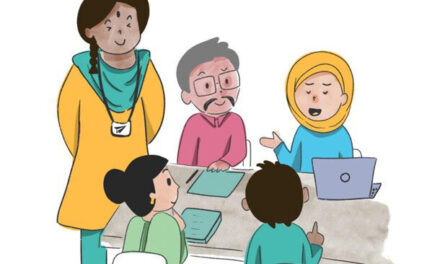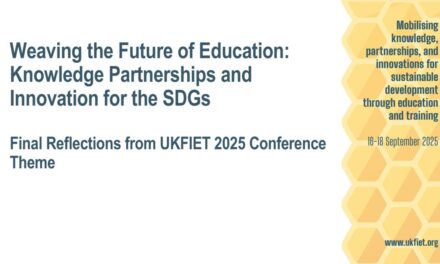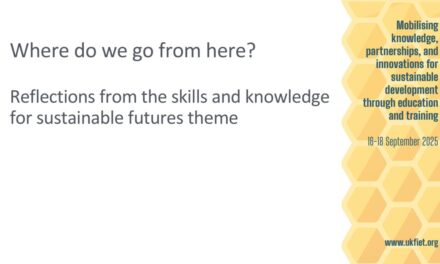Highlights from theme convenors of one of seven UKFIET 2025 conference themes, ‘Inclusion and intersectionality’: Laraib Niaz, University of Cambridge; Samantha Ross, Link Education International; and Michelle Sandall, Save the Children.
Inclusion and intersectionality are not abstract concepts; they are lived realities that shape how individuals engage with and experience education. What excites us most about this sub-theme is the opportunity to critically examine the complex identities that learners hold, in relation to gender, sexual orientation, disability, ethnicity, migration status and socio-economic background, and how these intersect and interact with educational systems and societal norms. While these intersections often expose structural barriers to inclusion, they also reveal opportunities to design more equitable, responsive and empowering learning environments.
In a global context where diversity, equity and inclusion (DEI) efforts are increasingly contested, and gender and disability rights and justice are being rolled back in many settings, this sub-theme provides a space for critical reflection and strategic reimagining. The submissions we received directly engaged with the institutional and normative frameworks that sustain inequality, asking how systems reinforce exclusion, how intersecting norms deepen marginalisation, and how these barriers can be dismantled in ways that are locally grounded and globally informed.
We are particularly encouraged by the many contributions that amplified voices often marginalised in mainstream discourse, especially those from the Global South, with submissions from Colombia, India, Myanmar, Nigeria, Pakistan, Sri Lanka and Sudan, to name a few. We are excited by the diverse representation across submissions, from early career researchers in the Global South to leading organisations such as ActionAid, the British Council, and the Language and Learning Foundation, ODI Global, Room to Read and the What Works Hub for Global Education, alongside academics from globally-recognised universities. These submissions bring rich contextual knowledge and lived experience, offering essential insights for building education systems that are not only inclusive but genuinely transformative.
How does this link to the overall 2025 conference theme and global landscape?
The Inclusion and Intersectionality sub-theme aligns closely with the overarching conference focus on mobilising knowledge, partnerships, and innovations for sustainable development through education and training. In a world marked by widening inequality, climate crises, conflict and political instability, education must serve as a mechanism for justice and empowerment, not merely access.
This sub-theme challenges us to ask not only what works, but for whom. It insists on centring those most affected by exclusion in conversations about reform, innovation and sustainability. In doing so, it contributes to a broader movement to democratise knowledge production, elevate local expertise, and foster partnerships that are equitable and accountable. In today’s global landscape, this work is more urgent than ever.
What kind of sessions/papers can we expect to find under your theme?
We are thrilled by the diversity, depth and creativity of sessions under this year’s theme, which collectively offer timely and critical insights into inclusive education in complex and challenging contexts. Highlights include symposia on Ethiopia’s education reforms amid conflict and COVID-19, strategies to counter resistance to gender equality, and analyses of the intersecting barriers faced by children with disabilities.
We are particularly energised by creative sessions that bring participatory and hands-on approaches to inclusive education, such as peer-learning models for girls in conflict-affected areas, workshops on curating inclusive children’s libraries, and explorations of the “invisible backpacks” children carry into foundational learning spaces.
Equally compelling are the paper and quick-fire sessions that interrogate structural inequities, reimagine teacher development, and amplify youth voices and Southern epistemologies. Whether exploring refugee education, pedagogies of peace, or gendered pathways to inclusion, these sessions offer concrete strategies for advancing equity and rethinking how education systems can better serve learners and educators impacted by inequality.
The challenges of building inclusive education systems are complex, and the current climate of resistance to DEI and gender equality makes this work even more urgent. Yet the depth of insight, creativity and commitment reflected in this sub-theme gives us reason for optimism. This conference provides a vital space to forge new solidarities, share hard-won lessons, and co-create pathways toward education systems that genuinely serve all learners and educators.
We hope this blog offers a flavour of what’s to come. Please do explore the full programme. We look forward to seeing you there and learning with you.




